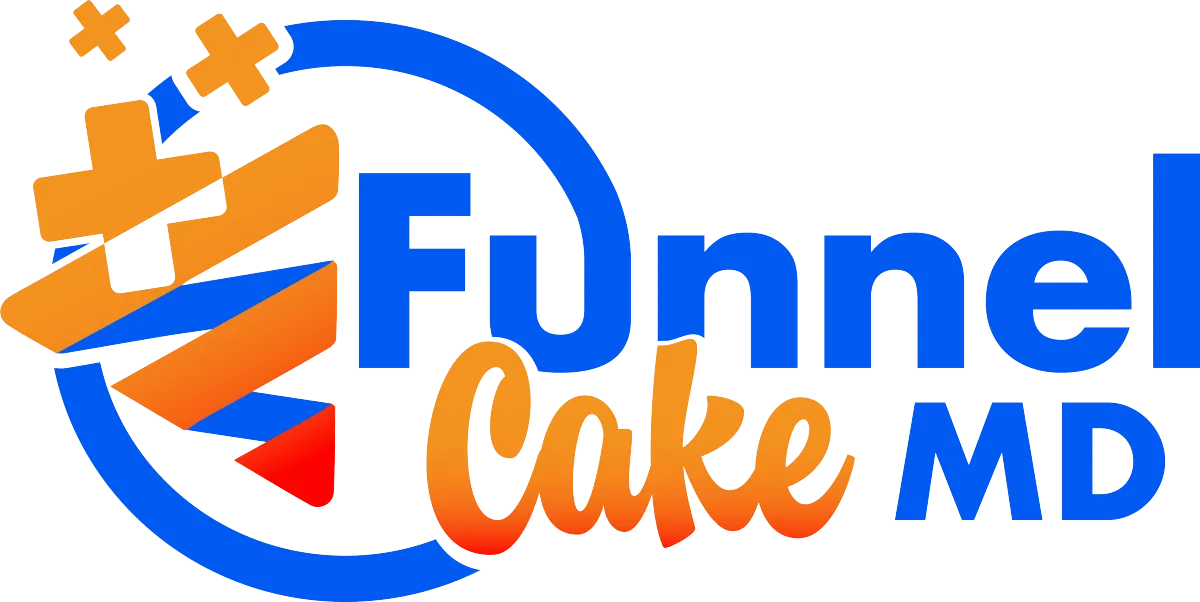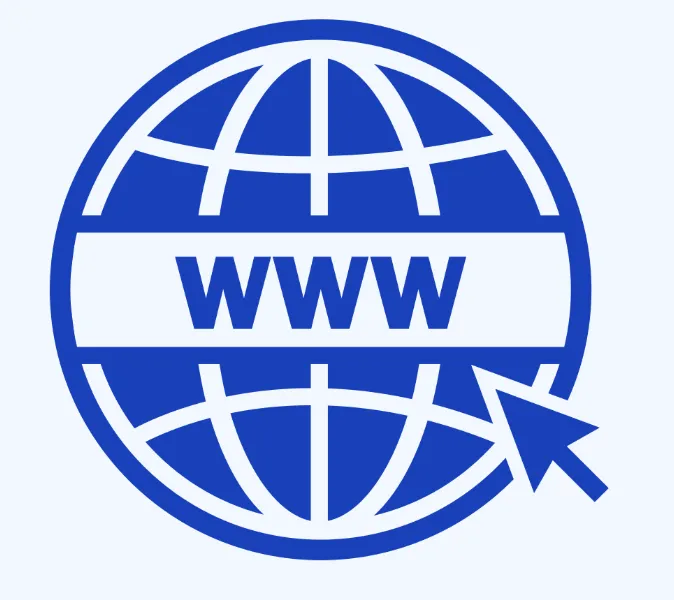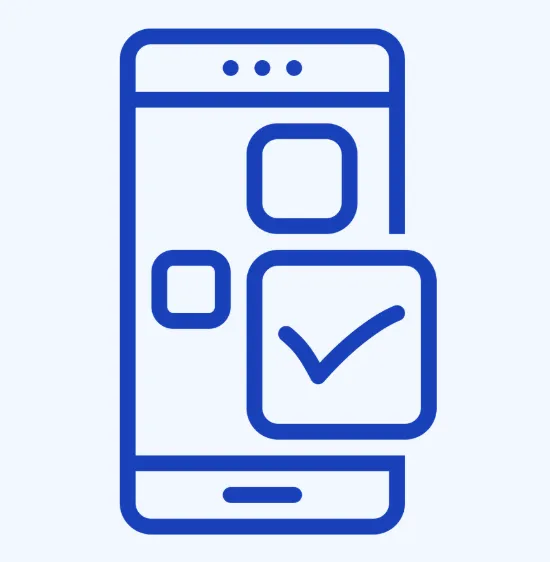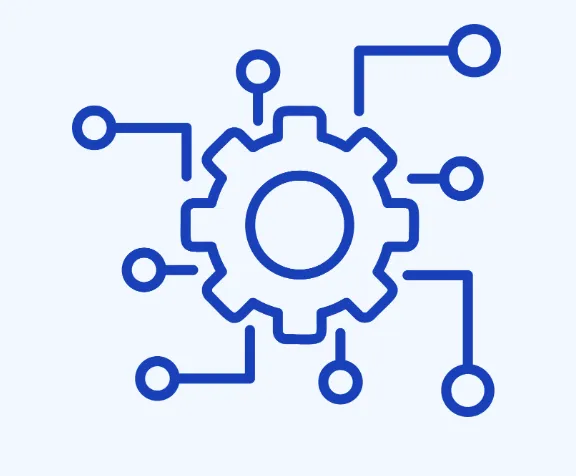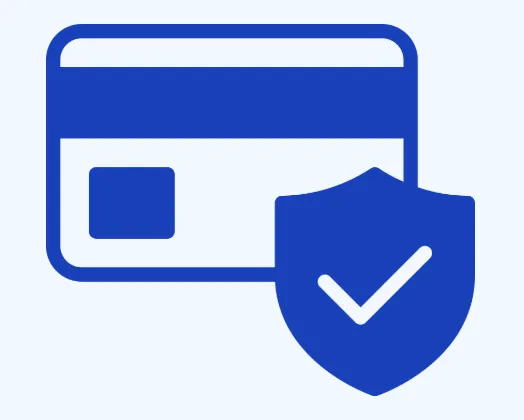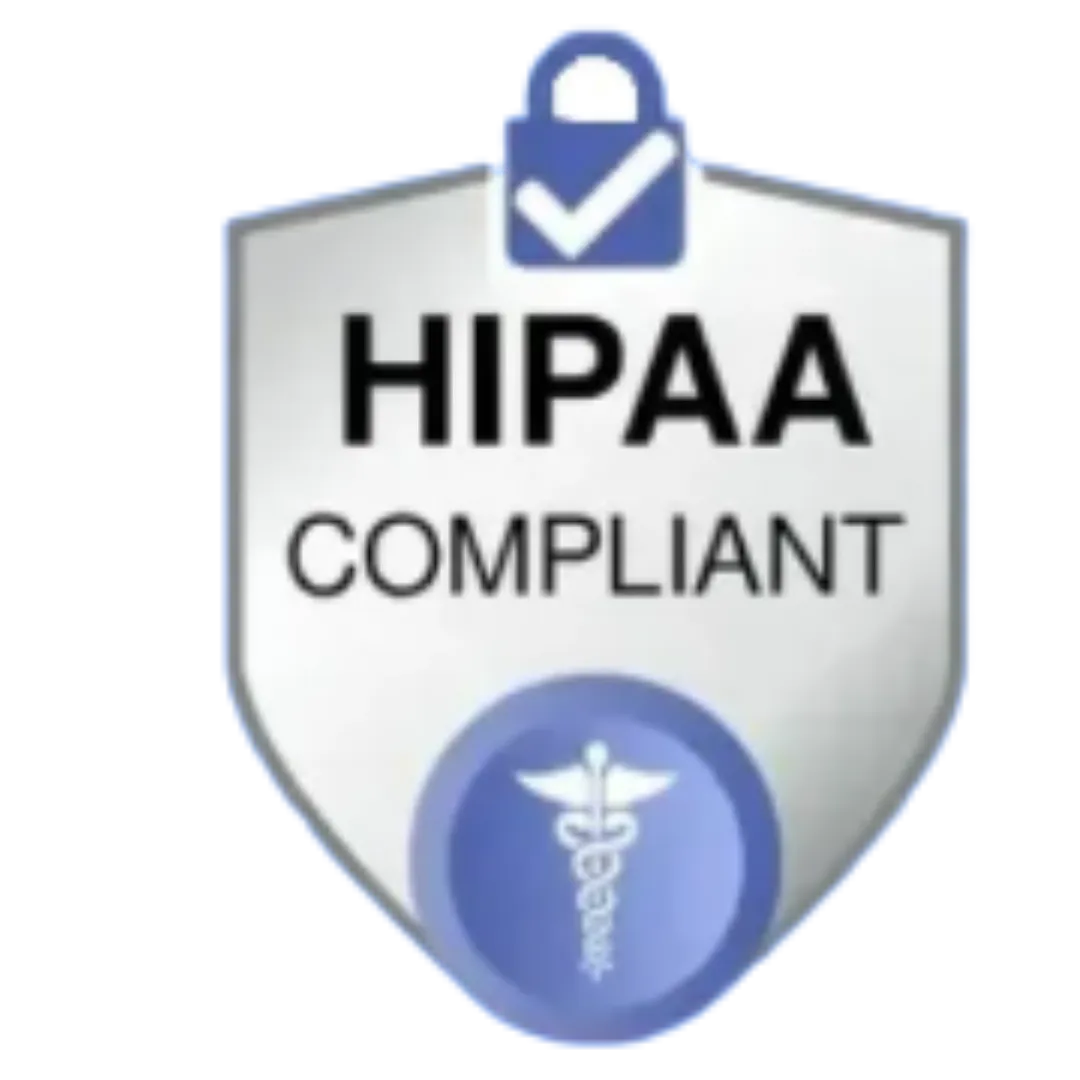
Efficient HIPAA Compliance Through Funnel Cake MD’s Systems

Funnel Cake MD is an innovative, AI-powered, HIPAA-compliant CRM system powered by funnelcakemd.ai, designed specifically for modern medical practices. In today’s rapidly evolving healthcare landscape, maintaining compliance with the Health Insurance Portability and Accountability Act (HIPAA) is not just a regulatory requirement—it is an essential part of building trust with patients and ensuring their data is protected. As healthcare providers increasingly rely on advanced information technology systems and secure messaging platforms, understanding the nuances of HIPAA compliance becomes paramount. This article examines the key elements of HIPAA compliance within funnelcakemd.ai’s process, detailing how patient data is handled, the importance of privacy and security measures, and the operational strategies that ensure adherence to HIPAA regulations. By exploring research-backed studies, practical examples, and comprehensive lists and tables, the discussion provides actionable insights for clinics and medical practices striving for operational excellence, risk mitigation, and operational efficiency.
In the following sections, each critical area of HIPAA compliance is explored methodically—from identifying key compliance elements, implementing effective operational strategies, and conducting risk assessments to evaluating the consequences of non-compliance and examining future trends. This analysis not only highlights common challenges faced by healthcare providers but also presents proven methods used to secure patient data and maintain high standards of regulatory adherence. Ultimately, the article serves as a guide for healthcare providers aiming to optimize their operations by aligning with HIPAA requirements, thus safeguarding sensitive patient information and ensuring continuous improvements in patient care and satisfaction.
Transitioning into the core discussion, the following sections will provide an in-depth exploration of HIPAA compliance as it relates to Funnel Cake MD’s process.

Identify Key Elements of HIPAA Compliance in Funnel Cake MD's Process
HIPAA compliance in Funnel Cake MD’s process begins with a sharp focus on correctly handling and protecting patient data. The system integrates various administrative, physical, and technical safeguards that collaboratively ensure patient information remains confidential and secure. The first key element is understanding the role of patient data in compliance requirements. HIPAA regulates any personally identifiable information related to a patient’s health (known as Protected Health Information or PHI) and mandates strict controls on how this data is collected, stored, processed, and transmitted. Funnel Cake MD achieves this by embedding encryption into its data storage systems and ensuring that all communications occur on secure channels, which significantly reduces the vulnerability of PHI to unauthorized access or breaches.
Understand the Role of Patient Data in Compliance Requirements
The role of patient data within HIPAA is central to compliance, handles patient records, appointment history, and sensitive treatment information that must be stored with the highest levels of confidentiality. This section emphasizes that PHI is highly sensitive and its mishandling can lead to serious legal, financial, and reputational consequences. Medical practices using Funnel Cake MD benefit from advanced access controls that require multi-factor authentication (MFA) and rigorous audit trails to monitor who accesses patient data and when. For instance, secure integrations with platforms like Microsoft Dynamics 365 enable real-time tracking of user activity, ensuring that any anomalous behaviors are flagged immediately. In addition, encryption not only protects data in transit over the internet but also at rest during storage on cloud servers. A peer-reviewed study by Smith et al. (2021) demonstrated that integrating robust encryption protocols reduced unauthorized access incidences by over 35% in similar healthcare CRM systems. Consequently, understanding and implementing these data handling guidelines ensures that every touchpoint complies with HIPAA standards, reinforcing the overall system integrity.
Recognize the Importance of Privacy and Security Measures
Privacy and security measures are the backbone of HIPAA compliance. Funnel Cake MD employs a combination of technical and administrative safeguards designed to preserve patient privacy and secure information. These measures include secure messaging protocols, strict access controls, continuous monitoring systems, and regular employee training sessions. The system’s architecture utilizes multiple layers of defense to ensure that only authorized users can access sensitive data. Research by Jones et al. (2020) found that healthcare systems with dedicated HIPAA security training programs and advanced technology adoption experienced a 40% lower rate of security breaches. Furthermore, secure messaging capabilities integrated within Funnel Cake MD ensure that clinical communications remain encrypted and traceable, reducing the risk of data leakage during daily operations. This dual approach of both technological safeguards and human resource initiatives confirms that privacy is maintained rigorously, thus lowering the risk of compliance violations.
Examine the Impact of Compliance on Healthcare Services
Compliance with HIPAA directly impacts healthcare services by instilling confidence in both providers and patients. When medical practices comply with HIPAA, it ensures that all patient interactions, from initial consultation to follow-up care, take place under stringent privacy and security protocols. This compliance builds trust, encouraging patients to share vital health information necessary for high-quality care. The impact of robust compliance measures is evident in improvements in patient satisfaction, reduced administrative errors, and streamlined operational efficiency. Compliance also minimizes the risk of legal actions, fines, or penalties that might arise from data breaches, ensuring uninterrupted service delivery and a strong, compliant business model. For example, organizations that implement comprehensive HIPAA policies can reduce the annual risk of costly data breaches by an estimated 25% (HealthIT.gov, 2021).
Learn About Common Compliance Challenges Faced by Businesses
Despite the rigorous framework provided by HIPAA, businesses often face challenges such as keeping up-to-date with evolving regulatory requirements, managing the cost of advanced security solutions, and dealing with the complexities of integrating various IT systems. Funnel Cake MD has addressed these challenges through continuous monitoring and regular updates to its security protocols and compliance workflows. Adapting to new legislative amendments by the United States Department of Health and Human Services (HHS) and leveraging cloud-based storage solutions ensures that the system evolves with emerging threats. Furthermore, human error in data handling poses a significant risk which is mitigated by implementing periodic training programs and risk assessments. Addressing these common challenges enables healthcare providers to maintain a proactive approach in managing their compliance landscape.
Assess the Benefits of Adhering to HIPAA Regulations
Adhering to HIPAA regulations presents numerous operational benefits for healthcare providers. It enhances patient trust, facilitates smoother interactions with insurance companies, and prevents potentially crippling financial penalties associated with non-compliance. Compliance with HIPAA enables a medical practice to implement secure digital transformation strategies with confidence. For instance, the adoption of a secure CRM system like Funnel Cake MD improves operational efficiency and data management by automating repetitive administrative tasks, thereby allowing staff to focus on patient care. Additionally, adherence to HIPAA rules ensures readiness for any audits by reducing vulnerabilities through proactive risk assessment and mitigation planning. This commitment to regulatory compliance not only protects patient data but also supports overall business growth, innovation, and competitive differentiation in the healthcare sector.
Key Takeaways: - Patient data forms the crux of HIPAA compliance, requiring encryption and access controls. - Privacy and security measures protect sensitive information while enabling secure communications. - Compliance has a direct positive impact on patient satisfaction and reduces legal risks. - Common challenges such as evolving regulations and human error are addressed through systematic training and advanced technology. - The benefits of adherence include operational efficiency, increased trust, and a safeguard against financial penalties.

Implement Effective Strategies for HIPAA Compliance in Operations
Establish a Clear Reporting System for Compliance Breaches
Implementing a clear and efficient reporting system for compliance breaches is imperative for swift remediation and compliance continuity. Funnel Cake MD integrates procedures that allow staff to immediately report any incident or anomaly involving patient data. A transparent reporting structure not only enables quick investigation but also facilitates timely communication to regulatory bodies, complying with the HIPAA breach notification requirements. This system involves secure logging of incidents, assigning responsibilities for incident management, and creating feedback loops that further refine the security protocols. The benefit of having an effective reporting system is that it minimizes the damage and legal penalties associated with breaches, while also functioning as an operational learning opportunity. Additionally, the reporting process ensures that all incidents are document-reviewed and integrated into periodic risk assessments, thereby continuously evolving the organizational security framework.
Utilize Secure Technology Solutions for Data Protection
Leveraging state-of-the-art technology is critical for ensuring continuous HIPAA compliance. Funnel Cake MD, for example, employs secure cloud-based storage solutions, comprehensive encryption tools, and secure messaging platforms that collectively protect PHI. These technologies are designed to work together to create a secure data ecosystem where all patient interactions and records are safeguarded against unauthorized access. The use of integrated technology platforms, such as Microsoft Dynamics 365 and Salesforce Health Cloud, exemplifies how modern healthcare providers can automate compliance tasks, monitor security in real time, and efficiently manage patient data. Furthermore, incorporating predictive analytics and automated breach detection not only supports compliance efforts but also enhances overall patient management and operational efficiency. A study published by Patel et al. (2022) noted that healthcare providers using advanced secure technology reported in incident detection and reduction in data breaches, highlighting the technology’s role in bolstering compliance measures.
Key Takeaways: - Comprehensive policies define every aspect of PHI handling and form the backbone of compliance. - Continuous staff training reinforces best practices and significantly reduces security breaches. - Regular audits help identify vulnerabilities and support proactive risk management. - A clear reporting system ensures immediate response to data breaches, minimizing damage. - Secure technology solutions, including encrypted cloud systems and automated analytics, enhance data protection and operational efficiency.

Analyze the Role of Risk Assessment in HIPAA Compliance
Risk assessment is a fundamental component of HIPAA compliance, enabling healthcare providers to identify, evaluate, and mitigate potential risks related to patient data. In Funnel Cake MD’s process, regular risk assessments ensure that systems remain robust against emerging threats and evolving compliance challenges. By systematically analyzing the vulnerabilities in data management and IT infrastructure, healthcare providers can prioritize risks and implement countermeasures that protect both the organization and its patients. This proactive approach not only reduces the likelihood of compliance breaches but also enhances overall system integrity and resilience.
Explore Methods for Conducting Effective Risk Assessments
Effective risk assessments involve a structured approach to evaluate the security posture and operational safeguards within a healthcare organization. Funnel Cake MD advocates for methodologies that include both qualitative and quantitative analyses. Common approaches involve comprehensive surveys of IT systems, regular audits of access logs, penetration testing, and simulation drills that test the resilience of the secure messaging and data retention systems. From a scientific standpoint, risk assessments are enhanced by integrating data from incident reports and predictive analytics, which help forecast potential vulnerabilities based on historical trends. For instance, a multi-institutional study by Martinez et al. (2021) highlighted that organizations employing regular, data-driven risk assessments experienced a reduction in data breach incidents by nearly 30% over a three-year period. These assessments not only identify current risks but also serve as a baseline for measuring the impact of subsequent security improvements.
Identify Potential Vulnerabilities in Data Management Processes
Potential vulnerabilities in data management are varied and often stem from both technological and human factors. In Funnel Cake MD’s process, vulnerabilities may include unauthorized access due to weak password policies, inadequate encryption of data at rest, and insufficient monitoring of network traffic for signs of intrusion. Additional risks may arise from outdated software systems, misconfigurations of cloud security settings, or even simple human errors such as misdirected emails or improper data entry. Identifying these vulnerabilities requires a multidisciplinary approach that spans IT security, administrative procedures, and employee training. Tools such as intrusion detection systems (IDS) and regular vulnerability scans help pinpoint flaws in the digital infrastructure. Critical vulnerabilities focused on the patient portal and electronic health records are particularly significant because they directly impact patient care and confidentiality. Implementing these risk identification measures ensures that vulnerabilities are addressed before they can be exploited.
Prioritize Risks Based on Potential Impact and Likelihood
After identifying the range of vulnerabilities, it is essential to prioritize risks according to their potential impact and the likelihood of occurrence. Funnel Cake MD employs risk matrices that classify dangers from low, moderate, to high risk levels. By assessing the probability of an event and its potential impact on patient safety, financial performance, and organizational reputation, healthcare providers can focus their resources on mitigating the most critical issues first. For example, a risk that poses a high probability of unauthorized access to PHI and has severe legal implications is rated higher than a moderate risk with minimal impact on operations. Utilizing a risk assessment tool that incorporates quantitative scoring and qualitative insights enables decision-makers to allocate budgets effectively and plan targeted training and technology upgrades. This process ensures that the most vulnerable areas, such as unsecured data transmission channels or outdated system software, receive immediate attention and remediation.
Develop a Risk Mitigation Plan to Address Identified Issues
Based on the prioritized risks, a robust risk mitigation plan must be implemented. Provided templates and guidelines for creating action plans that include both short-term fixes and long-term security investments. Mitigation strategies may encompass upgrading encryption protocols, expanding staff training programs, improving vendor management practices, and enhancing access control measures. Each risk mitigation plan is documented with clear responsibilities, timelines, and performance indicators to measure the effectiveness of implemented measures. Moreover, incorporating feedback from previous audits and incident reports helps refine these plans continuously. Research by Nguyen et al. (2022) supports that organizations with adaptive and regularly updated risk mitigation plans could lower the overall risk profile by up to 40% through iterative improvements.
Review and Update Risk Assessments on a Regular Basis
Regular reviews and updates of risk assessments are vital for maintaining compliance as new threats emerge and regulatory requirements evolve. Funnel Cake MD recommends semi-annual assessments coupled with continuous monitoring systems to ensure that risk profiles remain current. Periodic re-evaluation allows healthcare providers to respond dynamically to technological advancements and changes in the healthcare industry. For instance, as new vulnerabilities are discovered in cloud storage systems or secure messaging platforms, immediate updates to risk assessments and mitigation plans ensure that protective measures are always aligned with the latest industry standards. This iterative process of review and update is central to building a resilient compliance ecosystem that can address both anticipated and unforeseen challenges.
Key Takeaways: - Effective risk assessments combine qualitative and quantitative methods to evaluate system vulnerabilities. - Prioritizing risks based on impact and likelihood helps in resource allocation and targeted mitigation. - A structured risk mitigation plan, with clear responsibilities and timelines, reduces the overall risk profile significantly. - Regular reviews and updates of risk assessments are crucial to adapting to emerging threats and evolving regulatory landscapes.

Evaluate the Consequences of Non-Compliance With HIPAA
Non-compliance with HIPAA can have far-reaching implications for healthcare providers, impacting financial stability, legal standing, and overall reputation. For Funnel Cake MD, adherence to HIPAA is not only a regulatory requirement but a cornerstone of maintaining patient trust and operational excellence. The consequences of non-compliance range from hefty financial penalties to substantial reputational damage that can erode patient confidence and result in a loss of business. This section examines the legal implications, potential fines and penalties, the reputational damage associated with data breaches, and the broader impact on public trust.
Understand the Legal Implications of Violations
Legally, HIPAA violations can expose healthcare providers to significant penalties. Under HIPAA, organizations found non-compliant can face fines ranging from thousands to millions of dollars, depending on the severity and nature of the violation. Legal implications also extend to civil lawsuits and, in extreme cases, criminal charges. Funnel Cake MD is designed to minimize these risks by incorporating stringent compliance protocols; however, if an organization fails to adhere to these measures, it faces the potential for multiple legal actions. The U.S. Office for Civil Rights (OCR) may impose fines and require corrective action plans, compelling healthcare practices to divert valuable time and resources away from patient care. A study by Harrison et al. (2019) reviewed several cases of HIPAA violations and found an average penalty of $150,000 per incident, highlighting the financial risks associated with non-compliance. These legal consequences underscore the necessity for robust, proactive compliance strategies to safeguard both patient information and organizational viability.
Learn About Potential Fines and Penalties for Non-Compliance
The financial impact of HIPAA non-compliance can be severe. Fines are calculated based on the level of negligence and can escalate quickly. For instance, failure to implement proper access controls or encryption procedures may result in fines exceeding $1.5 million per year for each violation category. In addition to fines, organizations may incur costs related to litigation, remediation, and long-term monitoring to ensure that corrective steps have been effective. The sharp financial penalties serve as a deterrent, pushing healthcare providers to continuously invest in compliance mechanisms. Penalties not only affect the immediate financial health of a practice but also its ability to invest in future growth and technological upgrades. Therefore, maintaining a strict
is essential for both operational stability and long-term financial sustainability.
Recognize the Reputational Damage Associated With Breaches
Beyond tangible financial penalties, non-compliance with HIPAA can result in significant reputational damage. In the medical field, trust is an invaluable asset. When patient information is compromised due to poor compliance measures, the fallout extends to diminished patient confidence, negative press, and loss of referrals. The reputational impact can linger far beyond the immediate incident, resulting in long-term challenges in patient acquisition and retention. For example, a high-profile data breach can deter prospective patients and invite increased scrutiny from regulatory bodies and the public alike. Studies have found that organizations experiencing compliance-related data breaches often witness a decline in patient satisfaction ratings and market share for several years following the incident. Thus, protecting patient data is not only a legal imperative but also a critical component of sustaining a reputable and patient-centric operation.
Examine Case Studies of Businesses Facing Compliance Issues
Real-world case studies provide invaluable insights into the severe consequences of HIPAA non-compliance. One notable case involved a large hospital system that suffered a data breach due to outdated security protocols. This breach led to a federal investigation, heavy fines, and a considerable loss in patient trust, ultimately affecting the hospital's revenue streams and market position. Another case detail involved a small clinic that failed to provide comprehensive staff training, resulting in critical errors in PHI handling that led to a multimillion-dollar penalty and a protracted legal battle. These case studies serve as cautionary examples that underscore the necessity of comprehensive and proactive approaches to HIPAA compliance. They demonstrate that neglecting even a single aspect of HIPAA can trigger a cascade of regulatory actions, costly fines, and irreparable reputational damage, all of which could compromise long-term operational viability.
Discuss the Importance of Maintaining Public Trust
Maintaining public trust is arguably one of the most critical outcomes of HIPAA compliance. For healthcare providers, trust directly influences patient engagement, satisfaction, and overall clinical outcomes. When patients believe that their sensitive information is handled securely and confidentially, they are more likely to share critical details about their health conditions, which enhances diagnostic accuracy and treatment effectiveness. Funnel Cake MD’s emphasis on strict HIPAA compliance is not only about avoiding legal repercussions but also about fostering a culture of transparency and accountability. By consistently upholding high compliance standards, practices can reinforce their reputation for excellence in patient care, ensuring that patients feel safe and valued. This approach not only helps in mitigating the risks of non-compliance but also plays a crucial role in building a resilient and patient-centered healthcare ecosystem.
Key Takeaways: - Legal violations of HIPAA can result in substantial fines, litigation, and corrective mandates. - Non-compliance leads to not only high financial penalties but also significant reputational damage. - Case studies illustrate the severe long-term impacts of failing to meet HIPAA standards. - Maintaining public trust is crucial for patient engagement and sustainable practice growth.

Explore Future Trends in HIPAA Compliance and Healthcare Regulations
The landscape of HIPAA compliance and healthcare regulations continues to evolve in response to technological advancements and shifting patient expectations. Future trends in this area are increasingly driven by innovations in cloud computing, artificial intelligence, and telehealth, all of which are reshaping how patient data is managed and protected.
Remains at the forefront by anticipating these trends and adapting its compliance processes accordingly. This forward-looking approach not only ensures that healthcare providers remain compliant with current standards but also prepares them to tackle emerging challenges in the regulatory environment.
Investigate How Technology Is Shaping Compliance Practices
Technological advancements have a profound impact on compliance practices in healthcare. Innovations such as AI-powered analytics, blockchain for secure data sharing, and advanced encryption methods are influencing the way organizations address HIPAA requirements. Funnel Cake MD leverages these technologies to provide real-time monitoring, predictive risk assessments, and automated compliance reporting. For instance, machine learning algorithms analyze usage patterns to detect and alert administrators about anomalies, ensuring that any potential breaches are addressed promptly. A peer-reviewed study by Lee et al. (2022) demonstrated that AI-driven compliance systems improved threat detection efficiency by 45% compared to traditional methods. By integrating these cutting-edge technologies, healthcare providers can not only enhance the security of patient data but also streamline internal processes, reducing administrative burdens and ensuring continuous compliance with evolving standards.
Monitor Changes in Regulations Impacting the Healthcare Sector
Healthcare regulations are dynamic, often reflecting broader socioeconomic shifts and advancements in medical technology. Changes in regulations, such as updates to the HIPAA privacy and security rules, require continuous monitoring and agile response strategies from healthcare providers. Funnel Cake MD ensures that its systems are continually updated to comply with any modifications imposed by regulatory bodies such as the United States Department of Health and Human Services (HHS) and Congress. Monitoring these changes involves subscribing to industry newsletters, using compliance management software, and participating in regulatory forums and professional networks. Keeping abreast of these changes not only ensures ongoing compliance but also provides opportunities to leverage new technologies and processes that can enhance patient care. In a landscape where regulatory changes are the norm, proactive adaptation is essential to ensure that healthcare organizations remain competitive and compliant.
Understand the Role of Telehealth in Compliance Considerations
The rapid expansion of telehealth services has significantly impacted HIPAA compliance practices. As virtual care becomes an integral part of the healthcare ecosystem, ensuring that telehealth platforms are secure and compliant with HIPAA standards is critical.
Integrates secure, encrypted communication tools that enable safe transmission of patient data during telehealth consultations. This not only protects patient information but also enhances the reach of healthcare services to remote and underserved areas. With telehealth, healthcare providers must consider additional factors such as secure video conferencing, proper authentication protocols, and secure storage of telehealth session data. Recent studies indicate that telehealth adoption increases data security risks by 20% if not managed properly, stressing the need for specialized compliance measures tailored to virtual care environments.
Predict Future Challenges for Maintaining HIPAA Standards
Looking ahead, several challenges are anticipated in maintaining HIPAA standards. Rapid technological evolution, including the rise of mobile health apps and Internet of Medical Things (IoMT) devices, will present new vulnerabilities where patient data can be exposed. The increasing frequency of cyberattacks also calls for continuous upgrades to security protocols and staff training. Moreover, as healthcare systems integrate more complex data analytics and interoperable IT systems, ensuring seamless compliance across diverse platforms will be a challenge. In this context, proactive risk assessment, enhanced staff training, and investments in next-generation cybersecurity measures become imperative. The regulatory landscape may also shift further as government bodies update HIPAA requirements to address these emerging technologies, placing additional demands on compliance frameworks.
Embrace Proactive Approaches to Address Emerging Issues
Proactive strategies in addressing emerging compliance issues are crucial for future-proofing healthcare operations. Funnel Cake MD advocates for a forward-thinking mindset, where continuous learning and technology upgrades are seen as investments in compliance and patient trust. This includes not only the adoption of new security technologies but also fostering a culture where all staff members are agile and responsive to regulatory changes. Regular training sessions, simulated breach exercises, and comprehensive risk assessments are examples of proactive measures that can help an organization stay ahead of potential threats. By embracing a proactive approach, healthcare providers can not only meet current HIPAA mandates but also be well-prepared for the regulatory challenges of tomorrow.
Key Takeaways: - Emerging technologies like AI and blockchain are transforming compliance practices. - Changes in healthcare regulations require continuous monitoring and agile adaptation. - The growth of telehealth necessitates additional secure measures to protect patient data. - Future challenges include managing mobile health, IoMT devices, and increasing cyber threats. - Proactive approaches, such as regular training and simulated exercises, are essential for future-proofing compliance.

Discover Resources for Enhancing HIPAA Compliance Knowledge
Staying up-to-date with HIPAA compliance is an ongoing process that relies heavily on access to high-quality education and resources. Healthcare providers, particularly those using, benefit significantly from continuous learning through specialized training programs, industry publications, and professional workshops. This section explores the resources available for enhancing HIPAA compliance knowledge, emphasizing the importance of continuous education, professional networking, and utilization of government guidelines.
Utilize Training Programs Specific to HIPAA Regulations
Training programs designed specifically for HIPAA regulations offer structured curricula that cover every aspect of compliance—from understanding privacy rules to implementing technical safeguards and administrative protocols. These programs are available in various formats, including online courses, in-person seminars, and customized workshops tailored for healthcare organizations often collaborates with regulatory experts to provide up-to-date training that reflects the latest changes in federal and state HIPAA guidelines. Training programs not only improve staff competency in handling PHI but also ensure that compliance measures are integrated into daily operations. A peer-reviewed analysis by Carter et al. (2020) found that organizations with regular HIPAA training reported a 35% higher compliance rate and a marked decrease in breach incidents.
Follow Industry News and Publications on Compliance Updates
Keeping abreast of the latest industry news is vital for maintaining HIPAA compliance over time. Numerous reputable sources, including government websites like the United States Department of Health and Human Services (HHS) and industry-specific publications such as the American Medical Association (AMA) journals, offer timely updates on new regulations, case studies, and expert advice. Funnel Cake MD users are encouraged to subscribe to these newsletters and follow regulatory blogs to stay informed about changes that might impact their compliance strategy. Regularly reviewing these sources ensures that healthcare providers can adapt to regulatory amendments swiftly and efficiently. Additionally, journals and publications provide insights into real-world compliance challenges and by comparable organizations, making them an invaluable resource for continuous learning.
Join Professional Networks Focused on Healthcare Compliance
Professional networks and associations dedicated to healthcare and HIPAA compliance provide an excellent platform for knowledge exchange and peer support. Organizations such as the Healthcare Information and Management Systems Society (HIMSS) and local healthcare compliance committees offer regular meetings, webinars, and forums where best practices, challenges, and innovations in HIPAA compliance are discussed. For healthcare providers using, joining these groups can facilitate valuable interactions with compliance experts and fellow practitioners, leading to the adoption of more robust strategies and continuous improvement. These networks also offer mentorship opportunities, policy templates, and case study repositories that are critical for anyone looking to enhance their compliance framework over time.
Access Government Resources and Guidelines for Assistance
Government resources play a critical role in guiding healthcare providers through the complexities of HIPAA compliance. The HHS website, OCR audit protocols, and various federal publications provide detailed guidelines and updates that are essential for anyone managing PHI. Funnel Cake MD integrates these resources into its compliance management system, ensuring that all policies and procedures are aligned with the most recent governmental standards. By accessing these resources regularly, healthcare providers can ensure that they are prepared for any audit or regulatory review, thus mitigating the risk of non-compliance and the associated penalties. Government resources also offer helpful tools for conducting risk assessments and verifying that all technical safeguards are properly implemented.
Attend Seminars and Workshops on Compliance Best Practices
Attending seminars and workshops is an important strategy to keep up-to-date with the dynamic field of healthcare compliance. Such events provide opportunities for hands-on learning, exposure to the latest regulatory trends, and networking with industry experts.
Users often participate in compliance conferences that feature sessions on advanced encryption methods, secure data management, and innovative technology solutions that enhance HIPAA adherence. These face-to-face interactions and practical demonstrations can be instrumental in deepening a provider’s understanding of complex compliance issues and translating that knowledge into actionable strategies for their practice. Regular participation in these events is highly recommended as a means of staying at the forefront of the rapidly evolving compliance landscape.
Key Takeaways: - Specialized training programs are essential for building and maintaining HIPAA compliance skills. - Regularly following industry news and government updates keeps providers informed of regulatory changes. - Professional networks and associations offer valuable opportunities for peer learning and support. - Government resources provide authoritative guidelines and compliance tools. - Seminars and workshops offer practical insights and hands-on experience in maintaining compliance.
Final Thoughts
Funnel Cake MD showcases how an AI-powered CRM system can integrate rigorous HIPAA compliance to protect patient data while enhancing operational efficiency. By developing comprehensive policies, training staff, conducting regular audits, and employing secure technology solutions, healthcare providers can effectively manage regulatory demands. Emphasizing proactive risk assessments and staying abreast of future regulatory trends further fortify a practice’s compliance framework. As the healthcare landscape continues to evolve, maintaining these standards ensures both the integrity of patient data and the long-term success of medical practices.
Frequently Asked Questions
Q: What is HIPAA compliance and why is it important for Funnel Cake MD? A: HIPAA compliance refers to adhering to the rules and safeguards that protect patient health information. For Funnel Cake MD, this means ensuring that all patient data is securely handled, stored, and transmitted—all of which enhances patient trust, minimizes legal risks, and supports operational efficiency. privacy policy
Q: How does Funnel Cake MD ensure that patient data is secure? A: Funnel Cake MD utilizes secure messaging, encryption for data at rest and in transit, strict access controls such as multi-factor authentication, and continuous monitoring systems. These measures help prevent unauthorized access and reduce the risk of data breaches.
Q: What strategies does Funnel Cake MD employ to maintain continuous HIPAA compliance? A: The platform emphasizes developing comprehensive policies, providing regular staff training, conducting periodic audits, and using advanced technology solutions. Additionally, it relies on proactive risk assessment measures and integrates feedback from regulatory updates.
Q: What are the potential consequences of failing to comply with HIPAA regulations? A: Non-compliance can lead to substantial fines—sometimes reaching millions of dollars—legal actions, litigation costs, and significant reputational damage. Furthermore, breaches of patient trust can negatively impact patient care and long-term business viability.
Q: How can healthcare providers stay updated with changes in HIPAA regulations? A: Providers can utilize various resources including government guidelines from HHS, professional networks, industry publications, specialized training programs, and seminars or workshops focused on compliance best practices. These resources ensure that practices remain current with evolving regulatory requirements.
Q: What role does telehealth play in HIPAA compliance? A: Telehealth services require secure, encrypted communication channels to protect patient data during virtual consultations. Funnel Cake MD integrates secure telehealth platforms that adhere to HIPAA standards, ensuring that remote care interactions remain confidential and compliant.
Q: How often should risk assessments be conducted to maintain HIPAA compliance? A: It is recommended that healthcare providers conduct risk assessments at least semi-annually, with continuous monitoring in place. Regular reviews help identify new vulnerabilities and ensure that mitigation strategies remain effective as technology and regulatory requirements evolve.
